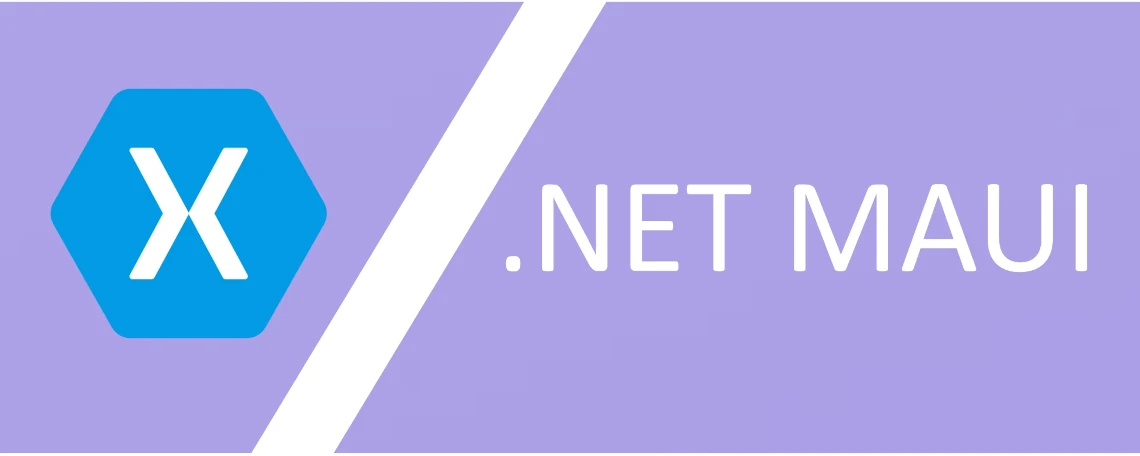
June 29, 2023 by Marvin
.NET MAUI vs. Xamarin: The Evolution of Cross-Platform App Development
Cross-platform app development has revolutionized the way developers create mobile applications. Advantages and disadvantages as well as popular frameworks were already discussed in the article "Popular Cross-Platform App Development Frameworks".
By allowing them to write code once and deploy it across multiple platforms, it offers significant time and cost savings. Two prominent frameworks in this space are .NET MAUI (Multi-platform App UI) and Xamarin, both backed by Microsoft. While Xamarin has been a popular choice for years, .NET MAUI represents the next generation of cross-platform development.
In this article, we will explore the key differences between .NET MAUI and Xamarin and understand why .NET MAUI is the future of mobile app development.
Check out our Docutain SDK for .NET MAUI
Integrate high quality document scanning, text recognition and data extraction into your apps. To learn more about the Docutain SDK and its packages contact us at SDK@Docutain.com.
Architecture and Compatibility
Xamarin
Xamarin uses Mono framework for mobile developers to write C# code and share it across multiple platforms. It provides bindings to native APIs, enabling access to platform-specific functionalities. However, its architecture has limitations when it comes to performance and UI flexibility. Xamarin.Forms, a UI toolkit within Xamarin, tries to solve these issues but lacks customization and a native appearance.
.NET MAUI
On the other hand, .NET MAUI is built on the foundation of Xamarin.Forms, but with a completely revamped architecture. It introduces a new way to use applications. This new way separates the user interface from the business logic. It also improves performance. Additionally, it supports modern UI styles. MAUI takes advantage of the latest features and enhancements in .NET, providing a more cohesive and unified approach to cross-platform app development.
User Interface and Design
Xamarin
One of the significant drawbacks of Xamarin.Forms has been its limited UI customization options and difficulty in achieving platform-specific designs. Developers often had to resort to platform-specific renderers and customizations to meet specific design requirements. This resulted in fragmented codebases and increased complexity for the app developer.
.NET MAUI
.NET MAUI addresses this challenge by introducing a new UI framework called MAUI Markup. It allows developers to create beautiful and responsive user interfaces using a single codebase. With improved control over UI elements and layouts, it is easier to achieve platform-specific designs while maintaining code reusability. The introduction of a simplified styling system further enhances the UI development experience.
Performance and App Size
Xamarin
Performance has always been a crucial aspect of app development. Xamarin has faced criticism in the past due to its perceived performance limitations. Although Xamarin apps can deliver near-native performance, the need for platform-specific customizations often resulted in overhead and performance bottlenecks.
.NET MAUI
With .NET MAUI, Microsoft has made significant improvements in performance. By leveraging ahead-of-time (AOT) compilation and other optimizations in .NET 7, apps offer enhanced performance and reduced startup times. Additionally, the introduction of the Single Project Model allows for smaller app sizes by eliminating redundant code and dependencies.
Ecosystem and Tooling
Xamarin
Xamarin has a mature and robust ecosystem with extensive community support. It provides a wide range of third-party libraries and plugins, allowing developers to leverage existing code and accelerate development. It also integrates seamlessly with Visual Studio and Visual Studio Code, providing a familiar and powerful development environment.
.NET MAUI
.NET MAUI inherits this strong ecosystem while building upon it. With improved tooling and support for modern development practices, it offers a more streamlined and efficient development experience. The unified .NET MAUI project structure simplifies code sharing and reduces complexity. This makes it easier for developers to maintain and update their applications.
💡 Github Samples
You can see the differences in the coding of the individual platforms very clearly in our Github Samples:
Should you migrate Xamarin.Forms to .NET MAUI?
.NET MAUI represents Microsoft's long-term vision for cross-platform app development. While Xamarin SDKs will continue to be supported until May 2024, .NET MAUI is positioned as the recommended approach for building cross-platform apps going forward.
.NET MAUI is delivered as a .NET workload. From .NET 7 onwards, .NET MAUI follows the .NET release cycle, i.e. .NET MAUI 7.0 was delivered with .NET 7.0, .NET MAUI 8.0 is delivered with .NET 8.0 and so on.
The .NET MAUI roadmap includes plans for improved performance, increased productivity, and expanded support for platforms beyond iOS, Android, and Windows.
Therefore, it makes sense to start familiarizing yourself with .NET MAUI as a future-proof platform for cross-platform app development needs. Build upon the existing knowledge of Xamarin.Forms, it introduces new concepts and patterns that developers might need to learn.
Microsoft supports the transition from Xamarin to .NET MAUI with tools and detailed documentation.
Check out our Docutain SDK
Integrate our MAUI Document scanner or Barcode scanner into your apps. The MAUI Scanner SDK can also be enhanced with Text Recognition and Data Extraction. Check out our Developer Documentation or contact us at SDK@Docutain.com.
Overview Xamarin versus .NET MAUI
In conclusion, while Xamarin has been a popular choice for cross-platform app development, .NET MAUI represents a significant leap forward in terms of architecture, UI flexibility, performance, and developer experience. With its improved design capabilities, enhanced performance, and a commitment from Microsoft, .NET MAUI is poised to become the go-to framework for building cross-platform applications. Developers looking to embrace the future of cross-platform development should consider .NET MAUI as their framework of choice.
Resources for getting started with .NET MAUI
Microsoft provides comprehensive resources to help you get started
You might also be interested in the following articles